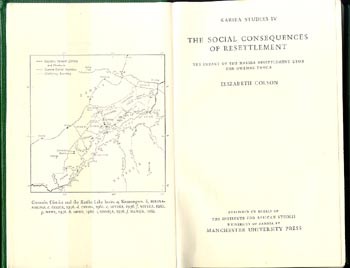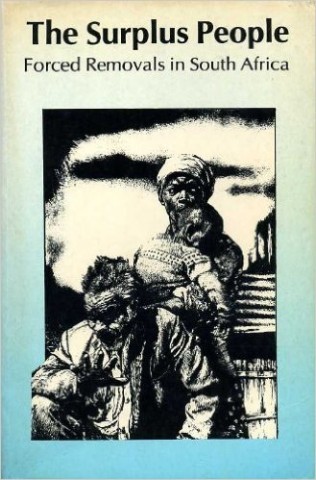Particularly since 2008, there has been a rise in displaced people due to land grabbing, or large-scale land investments. These developments has led some researchers to ask what the consequences, beyond the obvious loss of land, abuse of rights and disruption of livelihoods. For this, history has much to teach us. One such study is Elizabeth Colson's "The Social Consequences of Resettlement" (1971), presenting research conducted from 1956 to 1968 with the Gwembe Tonga and their relocation due to the creation of the Kariba dam. A few selections:
- "Massive technological development hurts. This is a fact largely ignored by economic planners, technicians and political leaders. In planning drastic alterations in environment that uproot populations or make old adjustments impossible, they count the engineering costs but not the social costs." (p. 1)
On "freedom versus development":
- "I told them, 'We are people of the bush. Our lordship [bwaami] lies in our poverty, for we know how to be poor and so need not accept your rule. We shall live as we are accustomed to live following our own laws. We do not want to live as they do in town, where people must live according to rules which are strange to them. Here a man builds as he wishes, and within his homestead he follows his own law.We do not want your regulations. We do not want your assistance.'" (p. 173)
On family:
- "It was here that relocation had an immediate and severe impact, often enough straining family relationships to breaking point. The Gwembe people had not foreseen this. They viewed the household as a group which would move together and carry out its familiar duties in the new setting without need of much adjustment. They had not foreseen that problems would arise because the resettlement altered the context within which family members were accustomed to interact or that it would disrupt the old reciprocal arrangements which had made the family system seem equitable to its members." (p. 101)
On political protest and organization:
- "During the resettlement years, Gwembe villagers were radical in their repudiation of Government as in any way representing their interests. They were conservative in their failure to develop new political leadership for any purpose except protest. In political life, as in their economic life and in their social order generally, they continued to use existing forms of organization." (p. 174)
Reflections on resettlement:
- "Much of what happened as a consequence appears to be common phenomena expectable whenever people are subject to forced migration, in a relocation of old communities. The immediate result is a period of upheaval in economic and social routines which can be expected to last for approximately five years, before people are sufficiently re-established in their new areas to see themselves as settled communities. The period is one of hostility towards Government and its officials, who are represented as disregarding local interests to advance some other section. Local leaders associated with resettlement lose legitimacy. Officials rule more openly by force and less by consent… " (p. 1-2)


